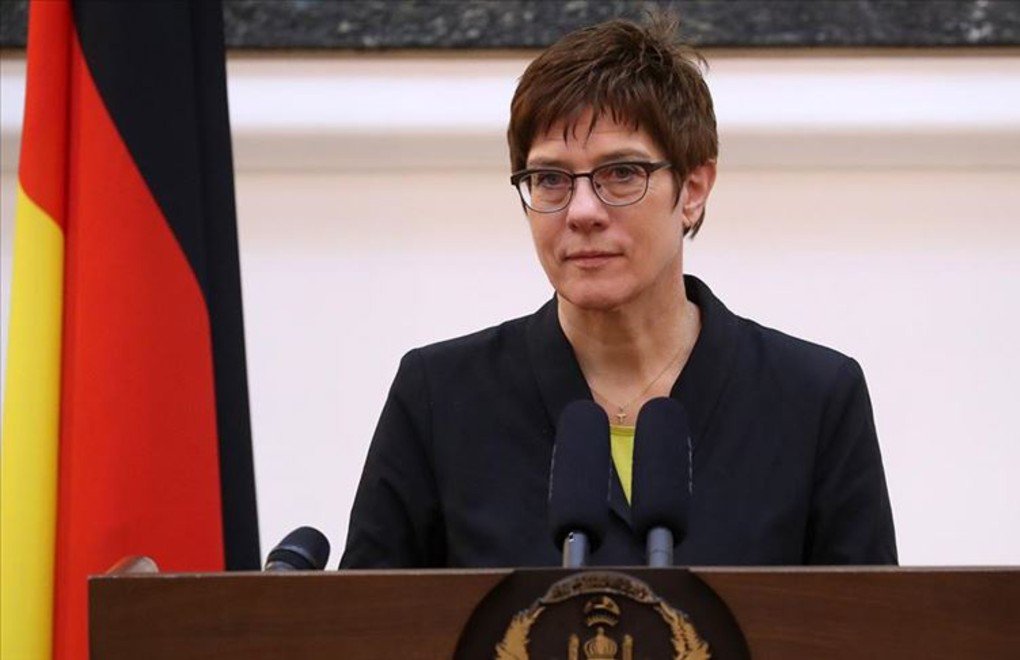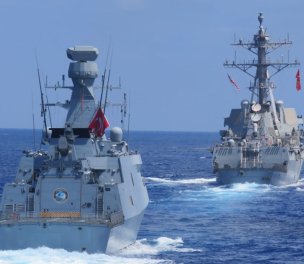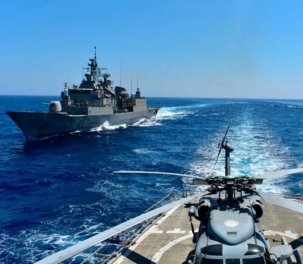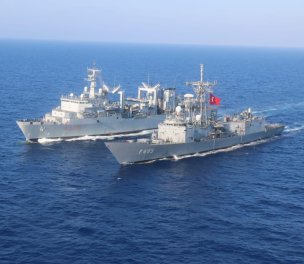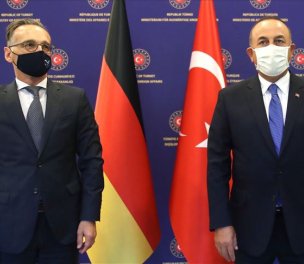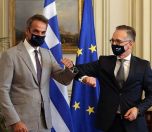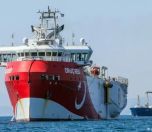* Photo: Anadolu Agency (AA) - Archive
Click to read the article in Turkish
Unaware that her microphone was on, Germany's Defense Minister Annegret Kramp-Karrenbauer said on Wednesday (August 26) that the talks with Turkey about the Eastern Mediterranean crisis were "hard."
The comments of the Minister came in the wake of Germany's Foreign Minister Heiko Maas' official visit to first Athens, then to Turkey to ease the escalating tensions between the two neighboring countries.
Shortly after Maas met with his counterparts in Greece and Turkey, Defense Minister Kramp-Karrenbauer attended the European Union (EU) Defense Ministers meeting in Germany's capital city of Berlin.
After the meeting, High Representative of the European Union (EU) for Foreign Affairs and Security Policy and Vice President of the European Commission Josep Borrell asked Kramp-Karrenbauer, "How was it?"
Unaware that her microphone was on, Germany's Defense Minister was heard to be saying, "Hard" and added, "A little bit more smooth on the Greek side but really hard on the Turkish side..."
In response to this, Borrell commented that "the Turks are very upset with this deal with Egypt" referring to the recent exclusive economic zone agreement signed between Athens and Cairo.
"They feel that the Greek are not reliable," he added.
'Make a fair agreement involving all parties'
As reported by the state-run Anadolu Agency (AA), addressing the reporters following the meeting in Berlin, Defense Minister Kramp-Karrenbauer urged the countries in the Eastern Mediterranean "to make a fair agreement that involved all parties to resolve tensions in the region."
"It means much more than tensions between neighboring countries, it has an influence on our cooperation," she told reporters.
According to Kramp-Karrenbauer, the bloc needs "to work as fast as possible to relax the tensions and transform them into negotiations."
European diplomacy aims at reaching "a fair agreement with all the parties involved" which implies a "difficult and complicated process," she added.
Kramp-Karrenbauer also said that she had agreed with her counterparts from Greece and the Greek Cypriot administration that fears of unintentional escalation needed to be defused first in order to start political negotiations.
EU foreign ministers have also been discussing the issue in the last two days, along with the situations in Belarus, Libya, the bloc's strategy towards Russia, and the geopolitical implications of the novel coronavirus pandemic.
Latest developments in the Eastern MediterraneanThe tension between Turkey and Greece over their right to explore energy resources in the Eastern Mediterranean has seriously escalated over the last months. The latest developments leading to this escalation are briefly as follows: On July 28, Turkey announced that it suspended hydrocarbon exploration activities in the Eastern Mediterranean and stated that it was ready to talk with Greece. On August 6, Greece and Egypt signed a maritime border agreement. On August 10, Turkey announced that its drillship Oruç Reis would resume energy exploration in the Eastern Mediterranean. It said the ship will continue its work along with the ships Cengiz Han and Ataman until August 23. On August 14, the EU foreign miniters discussed the crisis at an extraordinary meeting, calling on Turkey to end hydrocarbon exploration activities in contested waters. On August 16, Turkey issued a Navtex, announcing that its drill ship Yavuz will continue its work exploring for energy resources off the island of Cyprus. On August 23, Turkey issued another Navtex, stating that the Oruç Reis vessel would continue its activities until August 27. On August 24, Greece issued a Navtex, saying that its air and naval forces would hold joint exercises in an area overlapping with the one Turkey declared a day before. On August 25, Germany's Minister of Foreign Affairs Heiko Maas visited Athens and Ankara to encourage the two countires to have direct talks. On the same day, Turkey held replenishment exercises with Italy in the Eastern Mediterranean. On August 26, US President Donald Trump had phone talks with President Recep Tayyip Erdoğan and Prime Minister of Greece Kyriakos Mitsotakis, urging them to reduce tensions and start dialogue. On the same day, Turkey and the US conducted joint maritime exercises. |
(PT/SD)




